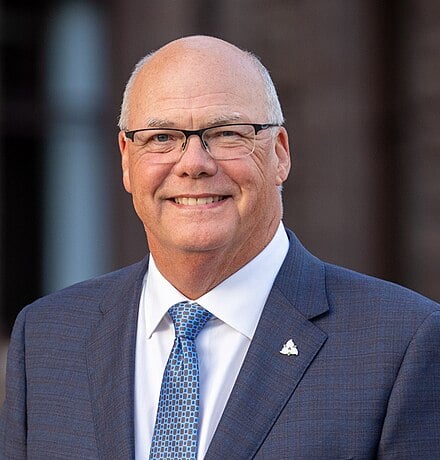Q&A with Ontario’s new agriculture minister

Ontario’s agriculture industry got a surprise earlier this month when Premier Doug Ford announced a cabinet shuffle late in the day June 6.
Read Also


Canadian beef sector urges resolution on Cargill labour dispute
Glacier FarmMedia – In a joint news release issued June 24, the Canadian Cattle Association (CCA), National Cattle Feeders’ Association (NCFA)…
Not only was a new agriculture minister announced, but the former Ontario Ministry of Agriculture, Food, and Rural Affairs (OMAFRA) was to be split into two separate ministries: the Ministry of Farming, Agriculture and Agribusiness, and the Ministry of Rural Affairs.
Rob Flack, MPP for Elgin-Middlesex-London was appointed the new agriculture minister and the former agriculture minister, Lisa Thompson, was appointed as Minister of Rural Affairs.
Farmers and industry stakeholders were quick to wonder about the name change of the agriculture ministry, particularly the removal of the word ‘food’.
In an interview with Farmtario June 11, Minister Flack announced that the agriculture ministry had been officially changed to the Ministry of Agriculture, Food, and Agribusiness.
“I told the Premier it was important to keep ‘food’ in the ministry title,” Flack said, after he met with the Premier over the previous weekend.
Farmtario asked Minister Flack what his priorities and agenda will be during the summer, before the Ontario legislature resumes October 21.
Q: Why did the Premier decide to split OMAFRA into two separate ministries?
A: Agriculture and food “is a massive industry in this province,” said Flack, and that Premier Ford felt agriculture “needed to be front and centre.”
He noted that one in every 10 Ontarians work in the agriculture sector, from farm gate to consumer plate, and for every graduate from a University of Guelph agricultural program, there’s four jobs waiting.
“It’s got real economic promise and potential” and that’s why the Premier wants to focus on, and why he changed the ministry’s structure, said Flack.
Having Rural Affairs as its own ministry “is not a new phenomena” said Flack, as it has been separated from the agriculture file several times in the past.
“There’s a lot of connectivity between rural affairs with municipal affairs throughout the province. Think of the connection to ROMA (Rural Ontario Municipal Association) and small towns, villages and communities.
“And I think Minister Thompson is eminently qualified to lead that ministry,” he said.
Q: Adding ‘agribusiness’ into the ministry title is new, and is a modern term. Can you expand upon why this term is included in the ministry title?
A: “It encompasses anything to do with ag and food economic development, whether you’re a farmer, you’re a farm supplier, a food processor, further food processor, in the distribution business or marketing game,” he said.
“It has to do with trade. It has to do with with anything from an economic lens to grow and build ag and food in Ontario.”
Q: Although you are just days into your new position, but can you share what any of your top priorities and what you’d like to focus on right away?
A: “Well, the first priority is to listen and learn,” he said. While he acknowledged he has an extensive background in agribusiness and food, “you can always learn so I’m busy at that.
“I want to get out and about as they say, and go and meet with stakeholders throughout the province.”
His second priority is is to continue to implement the Grow Ontario strategy, and work with his staff and ministry team on this.
“We’ve also got the federal-provincial-territorial meetings later in July, where all the provincial ministers of agriculture and the federal Minister of Agriculture gather with stakeholders to make sure we get the strategic priorities in place throughout the country.”
“And obviously from my perspective, to start to work within government to help promote and attract investment, more investment, continued investment in the agri- food arena,” noting the job creation and need for skilled trades in the sector.
“That opportunity is boundless and we need to take advantage of it now.”
Q: Tell us a little about your background. What skills and insight are you bringing from your career with Masterfeeds, and in your previous posts in government (as Associate Minister of Housing, Parliamentary Secretary to the Minister of Agriculture, Food and Rural Affairs and Member, Standing Committee on the Interior).
A: “I spent my entire career in the business of agriculture, and also farm up in the Ottawa Valley, where I run a herd of purebred Hereford cows. And I’ve just been connected to agriculture from the day I was born.
“So I love it. It’s in my DNA. It’s in my blood. So to get this honour from the Premier was humbling, to say the least and exciting all at the same time.”
Flack said he thinks his leadership and experience will help with the strategic implementation of many initiatives. “It’s early days, so I’m trying to get my bearings and to listen and learn, but I look forward to advancing the interests of all the stakeholders.”
“We just can’t see agriculture from a farm gate lens. [Farmers] are the base of everything we do”, but seeing things “from food safety right through to economic development, right through to working with all the stakeholder groups in various ministerial programs that support their initiatives” is important too, he said.
“Ag economic investment and development will be a key focus in this ministry going forward.”
Q: Can you speak a little bit more in broader terms about what kind of economic investment you’d like to see, and what sectors you are going to be focusing on?
A: “Whoever and where ever we need that support,” said Flack.
“For instance, I’d like to see us have a more robust and larger pork processing sector in Ontario to support our processors, we need to we need to process our own pigs right here in Ontario.”
“But any sector where there’s that opportunity, we want to help facilitate and work closely not only within our ministry, but also with the Ministry of Economic Development to make sure that we take advantage of all the opportunities.”
He pointed to his home region, where he provided three quick examples of economic development in agriculture: The Maple Leaf poultry processing plant, Dr. Oetker frozen food processor, and Aspire Foods (which produces proteins and pet food products from crickets), all in the London area, “the food corridor” in southwestern Ontario.
He said these are three quick examples where investments are paying off, “and I see that following throughout Ontario because those opportunities exist throughout the province.”
Q: There’s a lot of concern about farmland being used to build houses. Do you think your experience in as Associate Minister of Housing might help sort of quell some concerns or you have a little bit more to bring to the table if there is conflict between farmland and urban housing builds?
A: Flack said he learned a lot in the nearly 10 months he served on the housing file, and said the province has more than doubled in population since the 1970s.
“Everyone deserves a roof over their head no matter where you are in the socioeconomic position in this province. That being said, we still produce more food than we consume.
“So it’s a balance.
“Obviously I want to make sure that we preserve as much good farmland as we can because that’s where it all begins. At the same time, we have to find innovative ways, whether it’s on repurposed land, former lands that were used by the province, infill lands that municipalities own, whether it’s modular or factory built solutions.
“There’s many ways we continue to add to the housing continuum. And we can complement that by growing the food people are going to need.”
Housing and food are not privileges in this province or country, he said, “they’re absolute rights.”
He said his job is to create the environment that will allow all stakeholders to grow and process more food, “To feed not only our growing province, but a growing country and world.
“I have every confidence that our stakeholders will get the job done with the support of the Ontario Ministry of Agriculture, Food and Agribusiness, supporting them all the way,”
Source: Farmtario.com

